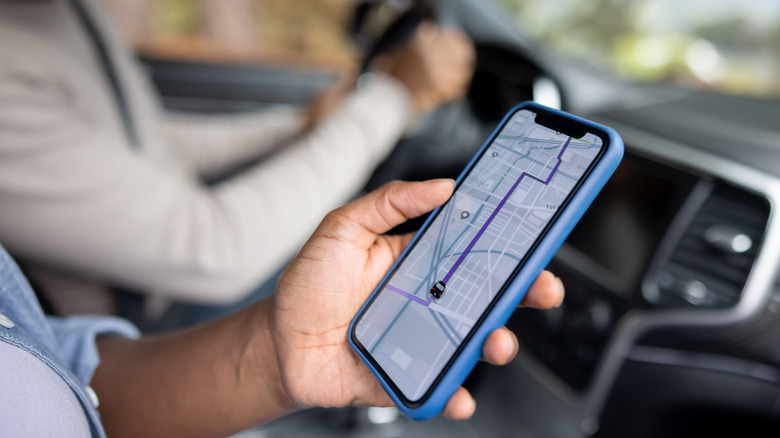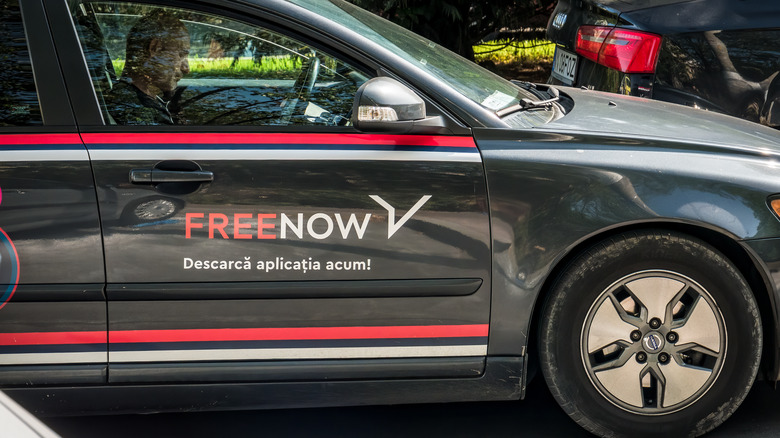What To Know Before Using Ride-Share Apps Abroad
Ride-share apps have revolutionized travelers' safety and mobility in cities large and small all around the world. Users no longer need to wait for buses that may never arrive, lose money with tourist trap transportation, or wave down taxis in the street driven by individuals who may not have the best intentions (or may not be certified taxis at all).
Ride-share apps can really provide travelers peace of mind with approved and reviewed drivers, safety features like sharing your ride, and approved in-app payment options with the ability to contact customer service if something goes wrong.
Not only that, but many ride-share apps these days offer in-app translation with messaging, so if you're in a foreign country where you don't understand the language, you can communicate with ease. If you're traveling solo, all of these features can be a huge plus, allowing you to travel more freely without fear of being taken advantage of, and you can get home safe after a night out.
That said, there are still plenty of considerations you need to make if you plan to use ride-shares when you travel. What ride-share apps are available in the country? What's the local etiquette as a rider? If you're on a tight budget, are ride-shares your best option? We'll answer all these questions and more.
Using ride-share apps compared to local taxis and public transportation
There's no question that public transportation is almost always going to be cheaper than most ride-share options and local taxis. However, you can't beat the convenience, comfort, and safety of a ride-share.
When you're traveling, you're even more vulnerable since you have valuables on you and may not know the area or language — a recipe for trouble. Solo travelers may also feel much safer using ride-shares late at night compared to public transport late or getting into a car with an unknown taxi driver.
Just be sure to read up on local forums about what it's like to take ride-shares in your city of choice. You may commit a social faux pas without even knowing it. For example, slamming the car door too hard in Mexico is seen as incredibly disrespectful. Instead, close it gently but firmly. It's better for the car anyway.
However, there are some instances where ride-shares may not be the best option in a given area or for your particular situation. For example, if your budget is a priority and you feel safe doing so, taxis can sometimes be the better option. Just ask a local what a good price is for a taxi in your area and ask the driver for the price to your destination before getting in the car.
Apps to use if Uber or Lyft are not available
Uber and Lyft are the most common ride-share applications on the market. However, in some places, they are illegal, banned, unavailable — whatever you want to call it. You can't use it there. And if they do appear to be available, you might have to be discreet about it (i.e. don't get in the back seat).
However, in many cases, there are ride-share alternatives that are available in these countries. Let's use Italy as an example. Currently, Uber's presence in the country is a bit tenuous. Yes, they exist in some capacity but have long been seen as an unregulated service, though Reuters reported in 2022 that Uber cemented a deal with Italy's most prolific taxi company so that established drivers could use the platform. You can also opt to use the local European ride-share app, FreeNow (formerly known as MyTaxi). The app is available in 10 countries across Europe, including Germany, where Uber is banned in many cities.
This app connects you directly to taxi drivers, just like Uber, and allows you to request rides just as easily as any major ride-share app. You can leave reviews and tip your ride for excellent service, but you can also report drivers for misconduct and get in touch with support if you have further issues.
You can also use Grab in Southeast Asia, EasyTaxi in Latin America, Careem in the Middle East, and DiDi, which is used mainly in China but is also available in Australia, Mexico, and Brazil.


